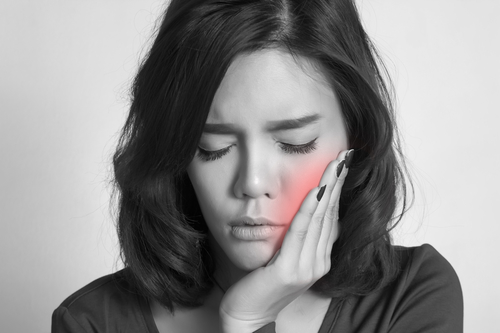Teeth grinding (bruxism) risks and treatments

Do you wake up with jaw pain? Are your teeth worn down, loose, or chipped? Do you experience chronic headaches? You could be suffering from bruxism, or teeth grinding. Clenching or grinding your teeth can have a significant negative impact on your dental health. Fortunately, our doctors at Silverwood Dental clinic offer preventative dentistry treatments that can help patients alleviate the discomfort associated with bruxism (teeth grinding). Today, we will discuss teeth grinding and jaw clenching risks and treatments to help you feel more rested, experience less jaw pain, and help improve your quality of life.
What are the risk factors of teeth grinding/bruxism?
When it comes to bruxism, there are certain risk factors that make patients more prone to developing the problem. For example, you are at a higher risk for teeth grinding if you:

- Are stressed. One of the primary causes of bruxism is anxiety. If you constantly feel stressed,
frustrated, or angry, you are more prone to teeth grinding. - Have a hyperactive personality. If you tend to be competitive or aggressive by nature, you may suffer from bruxism.
- Have a family history of bruxism. Like so many other dental issues, teeth grinding and jaw clenching can be influenced by genetics. If you have an immediate family member with bruxism, you are more likely to develop the condition yourself.
- Take certain medications. Bruxism has been known to occur more frequently in patients who take antidepressants or other psychiatric drugs.
- Drink or smoke. Alcohol consumption and smoking tobacco have both been linked to bruxism. Additionally, drinking beverages with caffeine increases your risk for teeth grinding.
- Are younger. Teeth grinding generally affects young children. When there aren’t any other obvious causes present, age could be a factor.
Bruxism complications
If bruxism is left untreated, it can lead to more serious health issues. These may include:
- Tooth erosion
- Damaged dental restorations
- Chronic headaches
- Jaw, ear, or facial pain
- TMJ disorder (click here for information about TMJ treatment options at Silverwood Dental)
What are the symptoms of teeth grinding?
Bruxism can occur during the day or at nighttime, depending on what is causing it. Patients who grind their teeth during sleep may not even realize they are doing it. You may be suffering from bruxism if:
- You have heightened tooth or gum sensitivity
- Your teeth have become chipped, fractured, or flattened over time
- The inside of your cheek is irritated from chewing on it
- Your jaw won’t open or close comfortably
- Your partner tells you he or she can hear you grinding your teeth or clenching your jaw at night
If any of these describe you, it is important to seek help from a dentist near you right away. Without treatment, the symptoms of bruxism are likely to worsen.
Treatment for Bruxism

One of the most common treatments for bruxism is the use of a custom mouth guard. These oral appliances keep your teeth from touching one another to prevent the damage caused by teeth grinding. Depending on your unique needs, custom night guards (occlusal splints) can be fabricated from hard or soft materials. In most cases, patients will only require one mouth guard to fit over their upper teeth. However, we will customize each treatment plan at our family dentist in Saskatoon to meet your needs.
If you have already sustained dental damage due to bruxism, we can address these issues through restorative dental treatments. For example, we may re-contour the chewing surfaces, or place dental crowns to repair your bite and help restore your smile.
Learn more about teeth grinding risks, and TMJ treatment
If you or a family member is suffering from bruxism or TMJ disorder, schedule a consultation at our Saskatoon, SK dental practice today. Call our clinic by dialing (306) 242-5233 or contact us online anytime.

